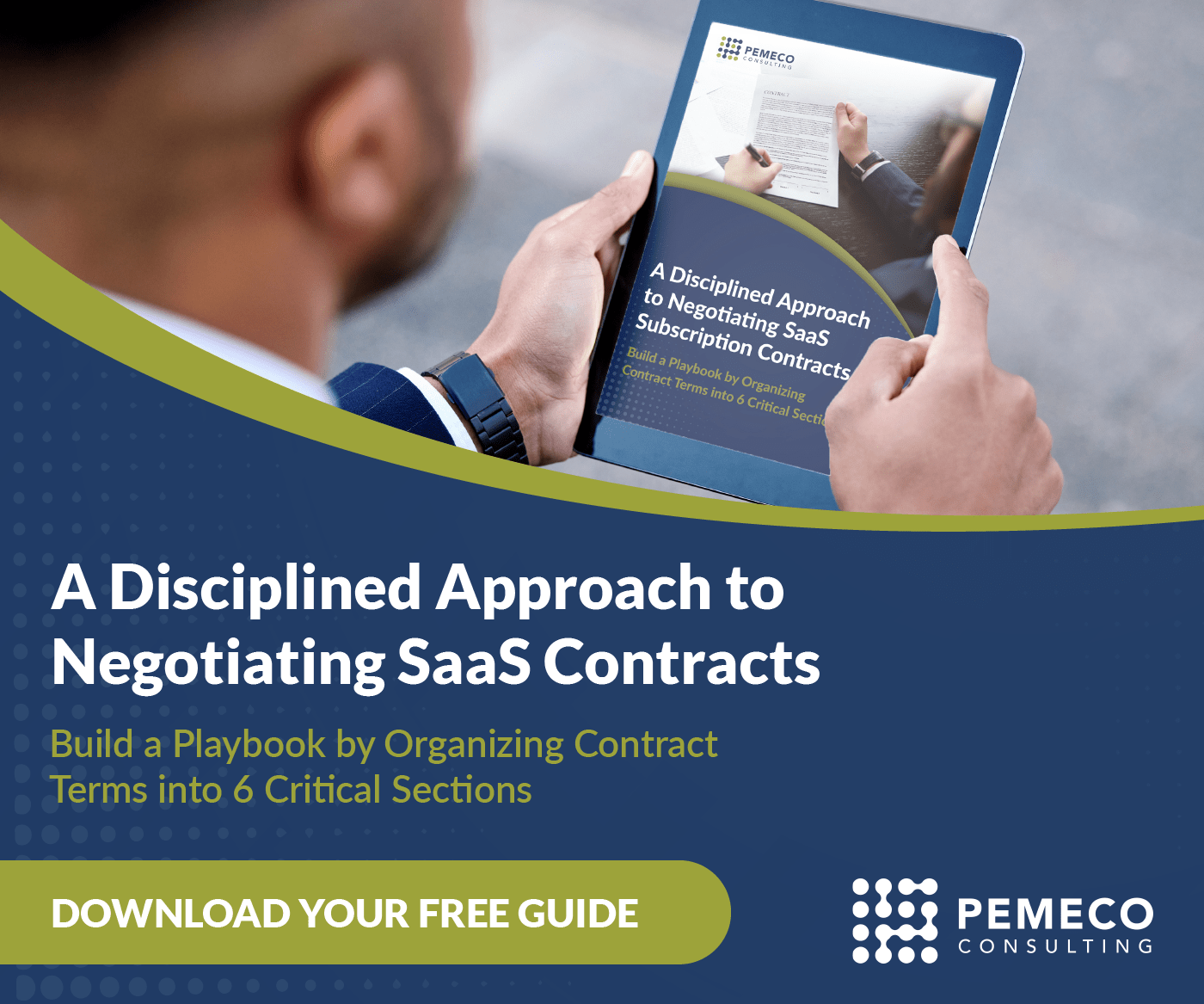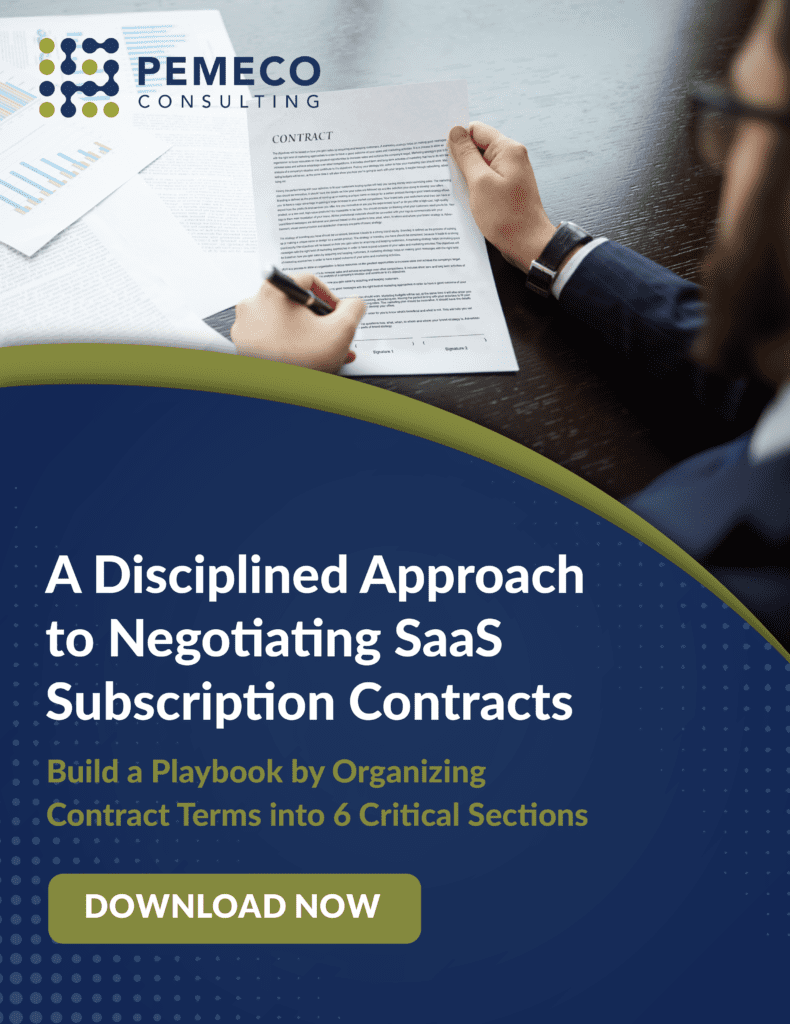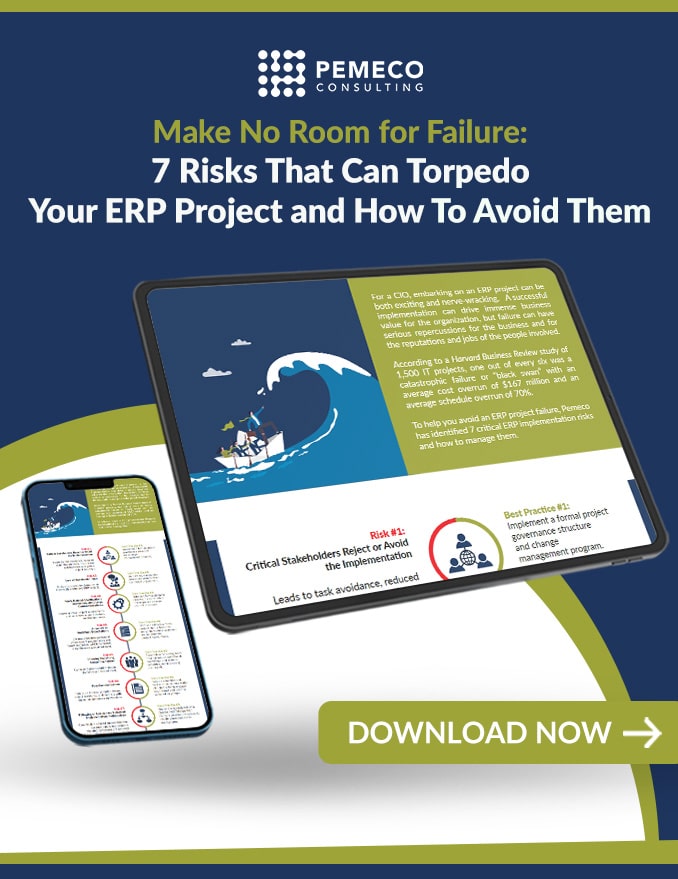In actual fact, ERP contract negotations can be a key driver of ERP implementation success. And, it’s a topic that doesn’t get nearly the attention it deserves – either by the ERP press or by ERP buyers and their advisors. So, I’ve decided to editorialize a recent discussion on the topic.
I recently participated in a Focus.com discussion initiated by Michael Krigsman – a vendor-agnostic ERP service provider, ZDNet Blogger and Focus.com advisor. He asked “How can services vendors protect themselves from unreasonable enterprise customers?” The first respondent, John McCoy, played devil’s advocate from the perspective of an admittedly “difficult and unreasonable enterprise customer”. He said:
“As an unreasonable and difficult enterprise customer myself, I can say that vendors should be very clear and direct about what they will deliver, how they will deliver it, and when they will deliver it.
Enterprise customers will always interpret obscure and ambiguous terms in their own favor. Clearly stated deliverables and scope keep menacing customers like me at bay!”
I thought John’s answer was a great answer. From my background as a corporate/commerical litigation lawyer, I appreciated why John would defend his company in the event of a dispute over ambiguous contract wording. A basic principle of contract law provides that ambiguities should be resolved against the drafter of the contract.
However, as an ERP selection consultant and contract negotiator, I found John’s answer troubling. John is clearly experienced in the world of enterprise software. His view seems to account for the fact that the vendors’ lawyers draft contracts to protect their own interests, to limit their exposure to liability, and to protect their rights to payment. And, he probably sees them doing this at the expense of the ERP buyers’ rights.
So, what ends up developing is an adversarial relationship where both parties focus on protecting their own interests at the expense of the big picture: ERP implementation success. Now, I don’t want to be misunderstood here. I certainly appreciate the importance of protecting one’s own interests. However, in my response, I explained the problem, as follows:
“Parties on all sides spend a disproportionate amount of time worrying about CYA language, and insufficient time building an agreement that promotes mutual performance.”
In effect, I’m saying that all parties need to work on building a contract that pushes them to deliver ERP success. This should be one of the key goals of the contract negotations. As I said at the outset of my post on this thread:
“I think smart vendors AND smart customers strive for a “meeting of the minds” and a clear expression of intention. After all, the purpose of a contract is to formally express the parties’ intentions with respect to the relationship.”
Once this framework is hammered out, then the parties can turn their minds to negotiating appropriate legal protections.The bottom line is this: rewarding successful performance is a more effective driver of ERP success then the threat of penalty for non-performance.
If you agree with me up to this point, the issue then becomes one of determining an appropriate contractual reward scheme. I gave the following example:
“Here’s a brief example of how contracts can be used to drive success. I recently completed contract negotiations on behalf of a category-leading manufacturer and distributor. Typical implementation services agreements require full payment by the buyer, regardless of ultimate performance. Our client wanted the service provider to put its skin-in-the-game – to incentivize a successful implementation project. So, we reached a deal that broke the client’s payment obligations into five. Each payment obligation would only be triggered upon the service provider’s successful completion of project phases. This way, the buyer only pays for what’s successful and the vendor only receives payment when it performs. Since the timing of payments depends on the timing of performance, the service provider is incentivized to deliver on time.”
In the final analysis, ERP buyers and vendors should take a step back and look at the business context, which is as follows. Buyers need to successfully implement ERP to deliver the projected benefits. The service providers need to successfully implement ERP to develop a good customer relationship. Their ultimate goals are the same. Their intentions are aligned. It’s time for the contracts to start reflecting those intentions, because that’s what contracts are supposed to do.
Your POV (post your comments below)
- Do buyers with relatively weak bargaining positions have a realistic shot at negotiating contracts that tie the vendor’s pay to its performance?
- What types of provisions should buyers be bound to secure their commitment to successful projects?





